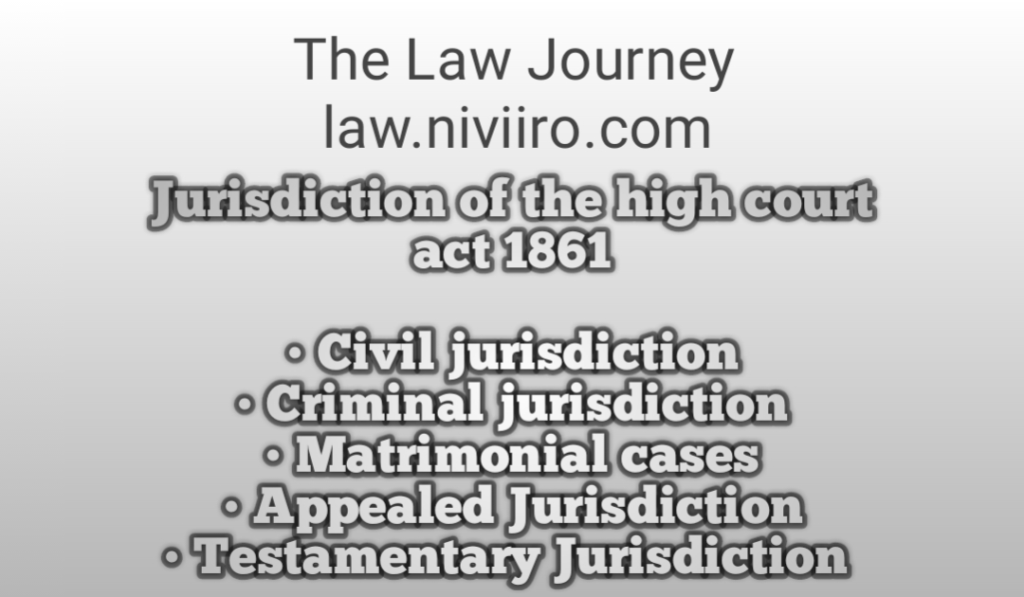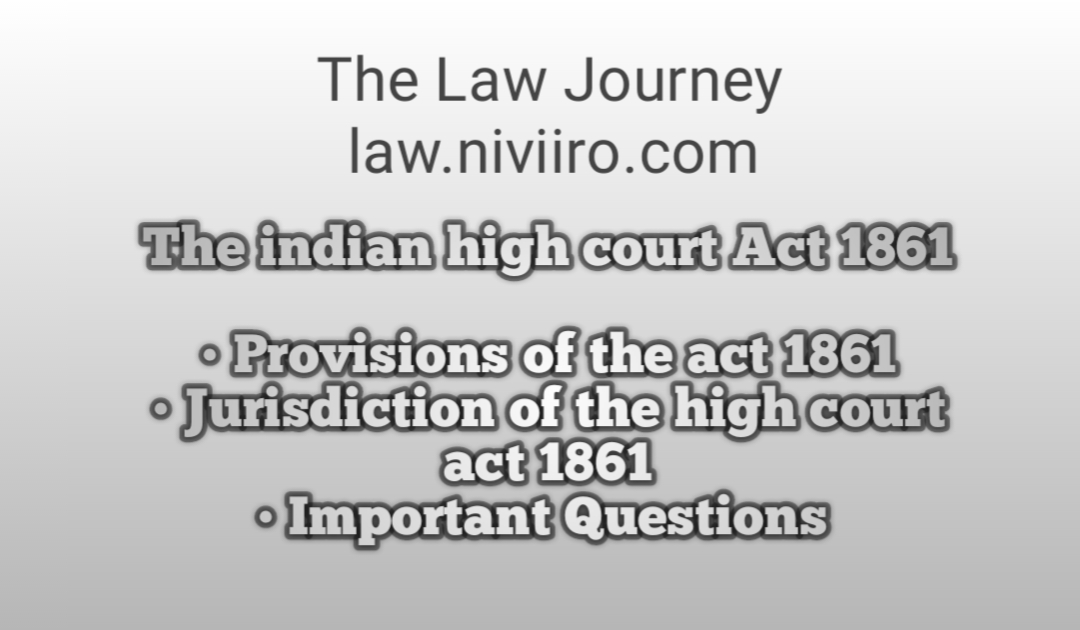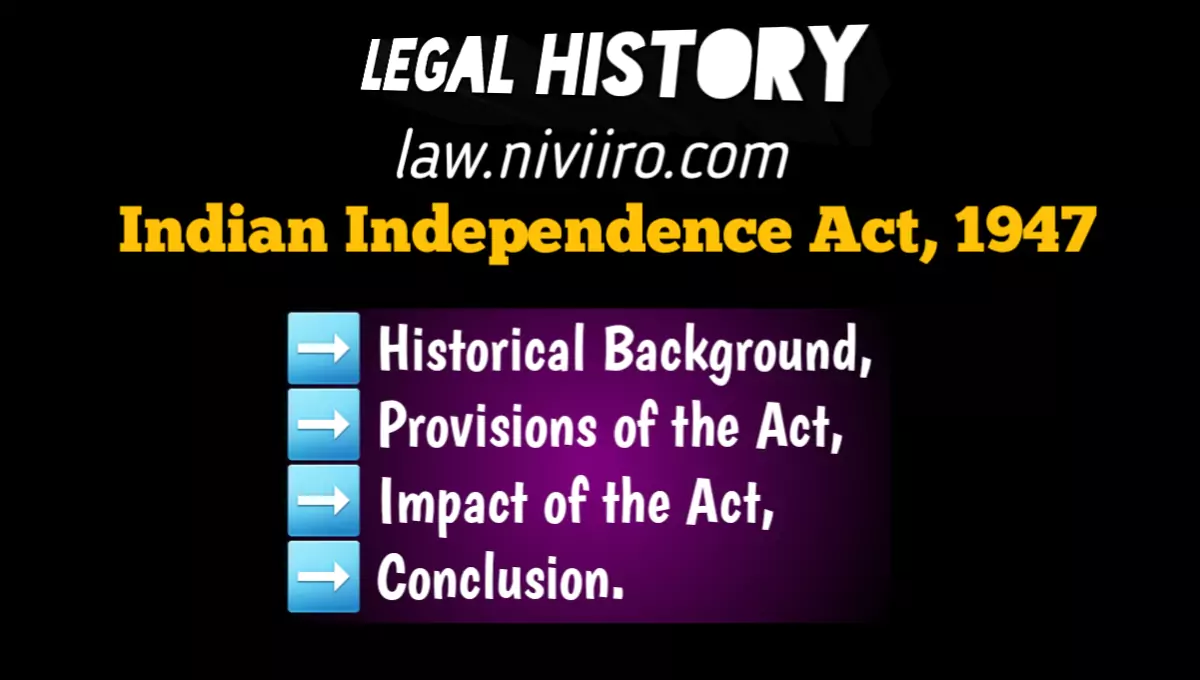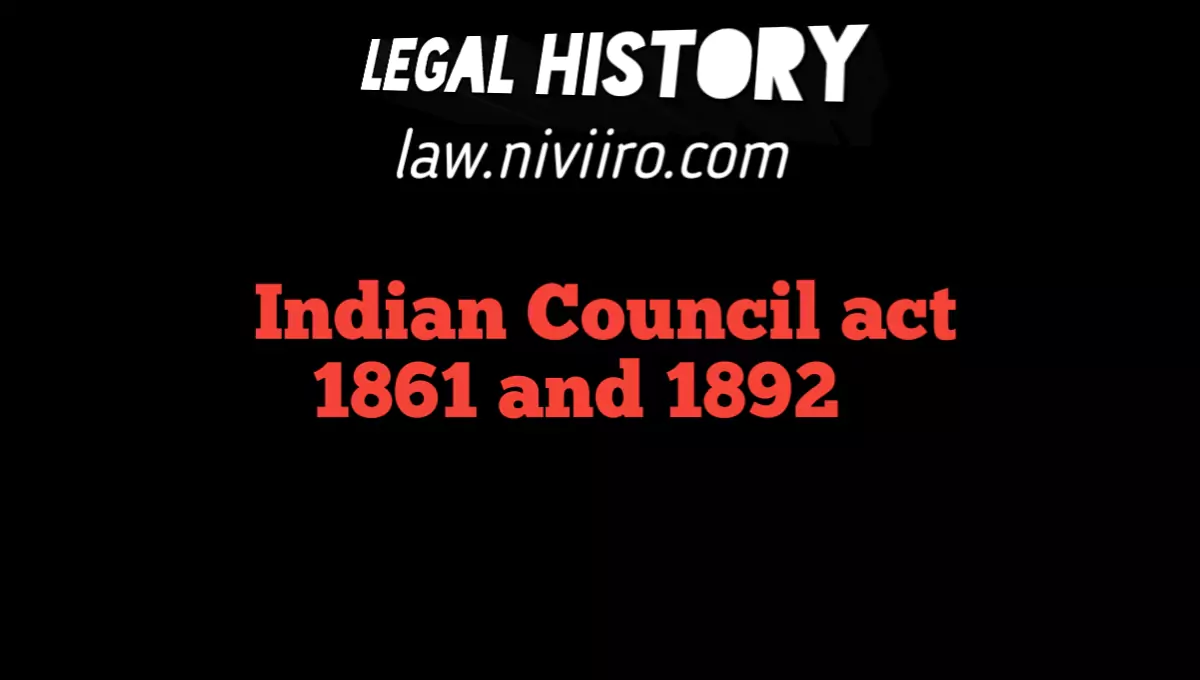The Indian High Court Act 1861 was passed by British parliament on the 6th August 1861.this act recognized. the judicial system of India with the title as “An act for establishing High Court of judicature in India”.
The Indian High Courts Act, 1861, did not by itself create and establish the High Court in
India. The Charter of Calcutta High Court was issued on 14th May, 1862. The High Court at Calcutta was established on 2nd July, 1862. The charter of establishing High court at Bombay and Madras was issued on 26 June,1862 and formally inaugurated in Bombay on 14th August, 1862 and at Madras on 15th August, 1862.
Provisions of the high court act 1861
- It vested authority in her majesty to erect and established High Court of judicature at Calcutta,Madras and Bombay.
- Establishment of High Court : – Indian high court in 1861 established Bombay High Court ,Calcutta High Court and Madras High Court via letter of patent.
- Abolition of previous Adalat like sadar diwani Adalat,supreme Court and Sadar nizamat Adalat also.
- Appointment of highly qualified judges : –
This act settled up the procedure of appointment of judges.
all the existing judges in the sadar Adalat,crown court, company court etc were appointed as judges and following was the procedure of appointment of New Judges.
It was lay down that not less than one third of the judges of the high courts including the chief justice were to be barrister not less than 5 year standing , one third of the judges were to be member of the covenanted civil service with the 10 year experience and one third of the judges were to be member of the judicial officers with the five year experience. the judges could hold their office during her majesty pleasure.
Jurisdiction of the high court act 1861

Civil jurisdiction | The indian high court Act 1861
The High Court was authorised to decide civil cases up to 10000 rupees included both ordinary and extraordinary jurisdiction.
Criminal jurisdiction | The indian high court Act 1861
The High court was authorised to Decide petty and series offences, criminal cases were governed under Indian penal code 1860.
Matrimonial cases | The indian high court Act 1861
It was introduce first time in the history of Apex authorities. it included cases related to Anglo Indian marriage and divorce.
Appealed Jurisdiction | The indian high court Act 1861
It was authorised to hear appeal from all over court’s.
Testamentary Jurisdiction | The indian high court Act 1861
The High court could decide all succession and inheritance cases.
Related Post
Important Questions | The indian high court Act 1861
What was the official title of the Indian High Court Act 1861?
“An act for establishing High Court of judicature in India”.
When was the High Court of Calcutta established ?
The Charter of Calcutta High Court was issued on 14th May, 1862. The High Court at Calcutta was established on 2nd July, 1862.
When was the High Court of Bombay established ?
The charter of establishing High court at Bombay was issued on 26 June,1862 and formally inaugurated in Bombay on 14th August 1862.
When was the High Court of Madras established ?
The charter of establishing High court at Madras was issued on 26 June,1862 and formally inaugurated in Madras on 15th August 1862.
what were the Provisions of the high court act 1861 ?
1. It vested authority in her majesty to erect and established High Court of judicature at Calcutta,Madras and Bombay.
2. Establishment of High Court : – Indian high court in 1861 established Bombay High Court ,Calcutta High Court and Madras High Court via letter of patent…..
what were the Jurisdiction of the high court act 1861 ?
1. Civil jurisdiction
The High Court was authorised to decide civil cases up to 10000 rupees included both ordinary and extraordinary jurisdiction.
2. Criminal jurisdiction
The High court was authorised to Decide petty and series offences, criminal cases were governed under Indian penal code 1860……
Refrences Book
- M.P. Jain, Outlines of India Legal History
- Indian legal and constitutional history by Dr. N. V. Paranjape
- V.D. Kulshrestha, Landmarks in Indian Legal History
- M. Rama Jois, Legal and Constitutional History of India
- Rankin G.C. Background to Indian Law
- A.B. Keith, Constitutional History of India

















